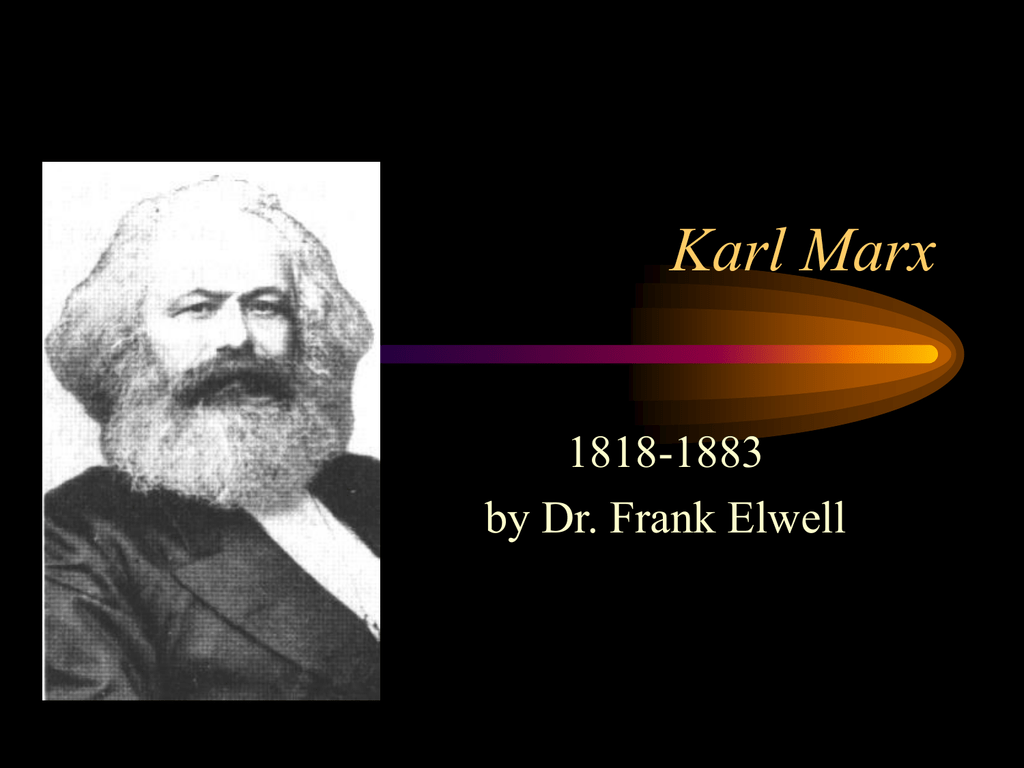With Karl Marx (1818-1883) socialism moved to a far more intense form—revolutionary communism.
Whereas the early socialists had anticipated a gradual and peaceful evolution toward Utopia, Marx forecast a sudden and violent proletarian uprising by which the workers would capture governments and make them the instruments for securing proletarian welfare. From Blanc he derived the summary of socialist goals: “From each according to his abilities, to each according to his needs.”
Marx found three laws in the pattern of history.
First, economic determinism: He believed that economic conditions largely determined the character of all other human institutions—society and government, religion and art.
Second, the class struggle: he believed that history was a dialectical process, a series of conflicts between antagonistic economic groups, ideas, and practices. In his own day the antagonists were the “haves” and the “havenots”—the bourgeois against the proletarians.
Third, the inevitability of communism: He believed that the class struggle was bound to produce one final upheaval that would raise the victorious proletariat over the prostrate bourgeoisie. As he wrote to a friend in 1852, “What I did that was new was to prove (1) that the existence of classes is only bound up with particular historical phases in the development of production, (2) that the class struggle necessarily leads to the dictatorship of the proletariat, (3) that this dictatorship itself only constitutes the transition to abolition of all classes and to a classless society.’
Although Marx was born and died in the nineteenth century, he belonged in spirit partly to the eighteenth. Marx early acquired a faith in natural law, fortified by the materialistic teachings of the German philosopher Ludwig Feuerbach (1804-1872), who proclaimed that Man ist was er esst (One is what one eats). From all this followed the boast made by Marx and his disciples that their socialism alone was “scientific,” as opposed to the romantic doctrines of the Utopians.
The romantic philosophy of Hegel, however, provided the intellectual scaffolding of Marxism. Although Hegel had died in 1831, his influence permeated the University of Berlin during Marx’s student days there (1836-1841).
Marx translated the Hegelian dialectic of thesis/antithesis/synthesis into the language of economic determinism and the class struggle. He believed that capitalistic production and the bourgeoisie comprised the thesis; the antithesis was the proletariat; and the synthesis, issuing from the communist revolution, would be true socialism.
By age thirty Marx had completed the outlines of his theory of scientific, revolutionary socialism. He had also become a permanent exile from his native Germany. On leaving the University of Berlin, he worked for a newspaper at Cologne in the Prussian Rhineland, then moved to Paris in 1843 after his espousal of atheism had aroused the authorities against him. Exiled again because the government of Louis Philippe feared his anti-bourgeois propaganda, he went to Brussels in 1845.
From Adam Smith’s labor theory of value Marx concluded that only the worker should receive the profits from the sale of a commodity, since the value of the commodity should be determined by the labor of the person who produced it. The Iron Law of Wages, however, confirmed Marx’s belief that capitalism would never permit the worker to receive this just reward.
And from observing the depression of the late 1840s, he concluded that economic crises were bound to occur again and again under a system by which capital produced too much and labor consumed too little. Essentially a scholar and a philosopher, Marx had initially expected that people would see the wisdom behind his ideas; that violence should be committed in his name was not his original intention.

